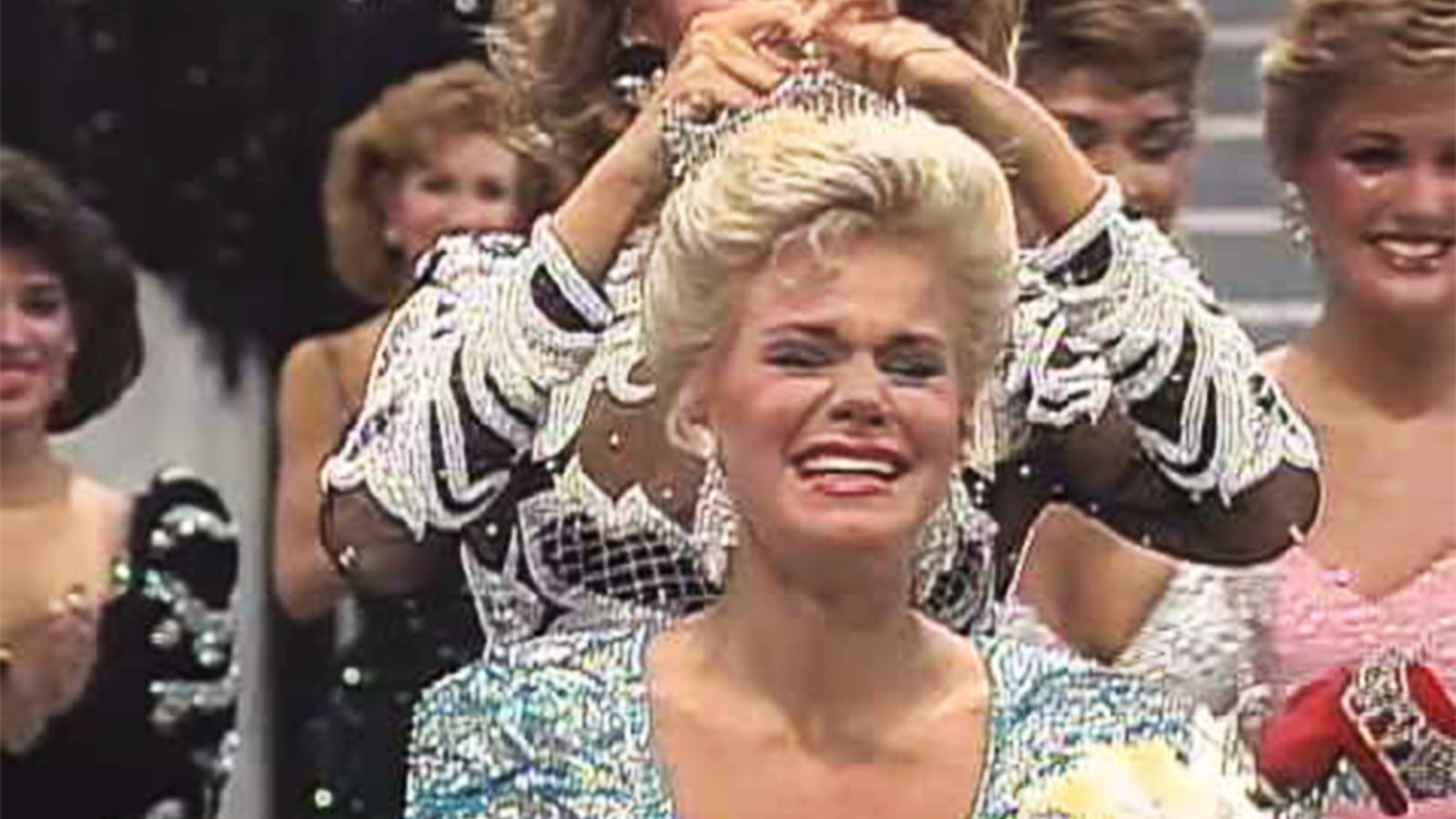There’s trouble in paradise as the storied Miss America pageant undergoes a makeover designed to make it more “relevant” for today’s young women. Leading the re-branding is former Fox News anchor Gretchen Carlson, who was Miss America 1989, and whose role in generating changes now to the almost 100-year-old institution has made her a lightning rod among those who treasure the pageant’s traditions and especially its signature bathing-suit-and-heels competition.
“We will no longer judge our candidates on physical appearance,” Carlson said at the National Press Club last month when she unveiled the organization’s new mission statement: “to prepare great women for the world and the world for great women.”
A pageant that is less about beauty and more about leadership skills is a hard sell for traditionalists. Relegating the bathing suit event to the dustbin of history sparked a rebellion among the extensive network of volunteers that keeps the pageant afloat. With just two weeks before the pageant gets underway in Atlantic City, 22 state organizers have called for Carlson’s resignation. And this week in a letter to state organizers that she posted on her Facebook page, the current reigning Miss America, 24-year-old Cara Mund of North Dakota, blasted Carlson and the board she heads for silencing her and imposing talking points about making Miss America relevant again.
Change is hard, said Carlson at the July press conference, recalling that when the pageant got underway in 1921, a year after women gained the vote, it was radical for a woman to be seen “parading” on the boardwalk in a bathing suit. In the 1940’s, a talent competition was added, prompting critics to say that would be boring, and in 1989, when Carlson was Miss America, representing her home state of Minnesota, celebrity judges were brought in for the first time, “and I wasn’t a fan,” she said. “I was a classical violinist and I wanted someone who understood classical music.”
Some of the pushback to Carlson stems from a feeling among longtime volunteers that she is using the organization to expand her own brand at the expense of pageant traditions. Carlson successfully sued Fox News Chairman Roger Ailes in 2016 for sexual harassment, settling for a reported $22 million. “Obviously, we’re experiencing what I refer to as a cultural revolution now,” she said at the National Press Club, and Miss America if it is to survive as a viable organization, has to change with the times.
“My own grandfather told me I was too short” to be Miss America, Carlson said. “I had to work really hard to compete in the swimsuit part. Trust me, you have to be physically and mentally fit to do this job,” which involves a lot of travel and no more than 48 hours in a given city. Also, she added, “Miss America never wore a swimsuit the day after she won.”
When Carlson entered the competition almost 30 years ago, 85,000 young women started out competing. She declined to give the number today, but it is just a fraction of what it was. Broadening the definition of beauty beyond physical attributes and publicizing the amount of scholarship money awarded ($489,000 to the 51 state winners this year) is intended to encourage more diverse applicants .
“We want Miss America to be seen for what it really is,” said Hopper, who credits the pageant with funding her way through law school. “Our candidates know how to walk on stage and how to command a room,” she said. “They can be beautiful because they have a social conscience. They can be glamorous because they want to make a difference in the world.”
Judging on self-esteem and confidence and how contestants talk about career goals or leadership skills, “some people say that makes it more boring,” said Carlson. “That is sexist on its face. Our women have substance.”
If it all sounds a bit contrived, that’s because it is. Miss America 2.0 is not a pageant with contestants in this new world, but rather it’s a competition. “We have candidates for a job, a paid job,” said Hopper. The winner becomes an employee of Miss America Corporation once she is crowned. And that’s what has riled up many of the state chapters, which blame Carlson, who chairs the Miss America board, and Hopper, its CEO, for overstepping their bounds and “attempting to bully, silence and manipulate state titleholders, MAO (Miss America Organization) volunteers and even the new Miss America to be crowned on Sept. 9,” according to the communications firm representing the dissidents.
“Volunteers have a voice,” said Carlson, but she is unmoved, dismissing the objectors as “a very vocal minority.” Just how vocal, and how many, she will soon know when volunteers from all 50 states and the District of Columbia gather in Atlantic City for the three-day competition that ends with the crowning of Miss America on September 9. Like everything else in the country today, it is likely to be divisive and disruptive, with the new and expanded definition of beauty perhaps generating nostalgia for the bygone bikini.





